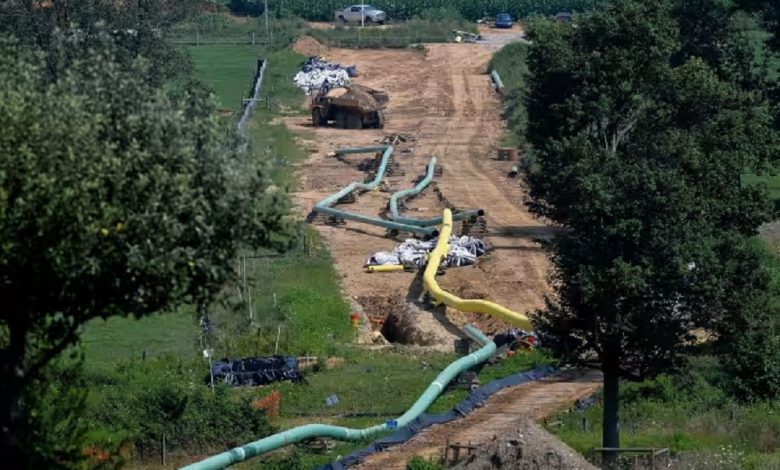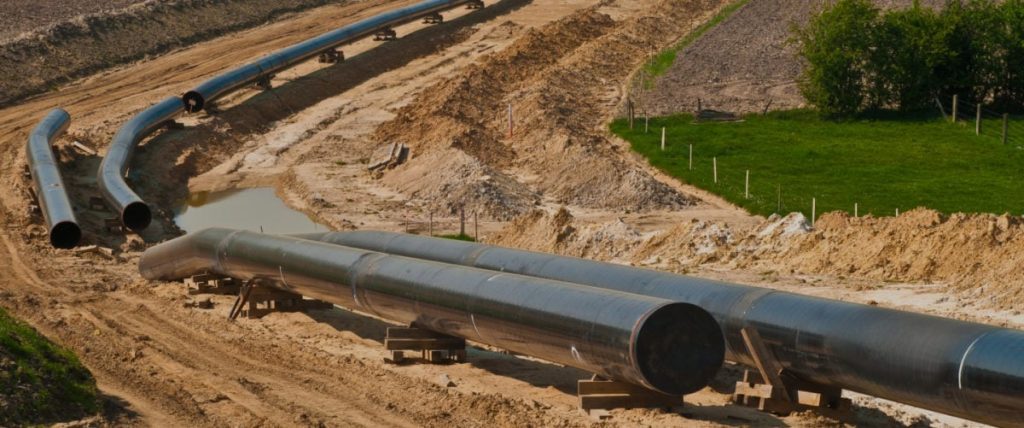New York Approves Controversial $1 Billion Underwater Gas Pipeline Amid Climate Debate
The NESE pipeline project sparks fierce environmental and political backlash as New York struggles to balance energy needs and climate goals.

In a landmark and divisive move, New York State regulators have granted final approval for the Northeast Supply Enhancement (NESE) pipeline — a $1 billion underwater natural gas project designed to connect Pennsylvania’s gas fields with the greater New York City area. The project, proposed by Williams Companies, stretches roughly 23 miles beneath the Raritan Bay and the New York Harbor, linking two states at the heart of America’s energy and climate crossroads.
This approval marks a dramatic policy shift. The New York State Department of Environmental Conservation (DEC) had repeatedly rejected the project in prior years, citing risks to water quality and marine ecosystems. But under growing energy demand and fears of potential shortages next summer, the DEC reversed course, declaring the project “safe with conditions” and issuing the crucial water quality certification.
Governor Kathy Hochul defended the move as a pragmatic decision grounded in energy security, not politics. “We must govern in reality,” Hochul said, pointing to forecasts of supply constraints that could affect millions of New Yorkers. The DEC, she emphasized, attached strict mitigation measures to minimize environmental harm during both construction and operation phases.
Industry Promises and Political Tensions
Williams, headquartered in Tulsa, Oklahoma, has framed the NESE project as essential to stabilizing energy prices and ensuring economic growth across the region. Construction, expected to take about two years, will feed additional natural gas to National Grid, which serves nearly two million customers in New York City and Long Island.
Supporters, including the New York State Building Trades Council and the Partnership for New York City, argue the project will generate thousands of union jobs and secure affordable energy for residents and businesses. National Grid President Sally Liabra echoed that sentiment, calling the pipeline “vital for long-term energy reliability.”
But environmental and progressive political circles see the approval as a betrayal of New York’s ambitious Climate Leadership and Community Protection Act of 2019, which mandates an 85% reduction in greenhouse gas emissions by 2050.
Prominent Democratic leaders, including House Minority Leader Hakeem Jeffries and climate activists, criticized the decision as “a step backward.” They argue that expanding fossil fuel infrastructure locks the state into decades of dependence, directly undermining its renewable energy commitments.

Zoran Mamdani and the Progressive Pushback
Among the loudest critics was Zoran Mamdani, the newly elected progressive mayor of New York City, who has made climate justice and anti-fossil-fuel policies central to his platform. Mamdani, a democratic socialist and vocal advocate for Palestine, warned that the NESE project contradicts the city’s climate agenda. “Investing in new fossil fuel pipelines when the planet is burning is not energy security — it’s moral failure,” he declared in a statement following the DEC decision.
Mamdani’s opposition underscores a growing divide between the state’s Democratic establishment and its progressive wing — a rift intensified by debates over housing, policing, and climate policy.
Environmental Concerns and Legal Challenges Ahead
Opponents highlight that 17 miles of the pipeline will be buried in sensitive marine zones near Staten Island and the Rockaway Peninsula, potentially disrupting marine habitats and releasing toxic sediment. Environmental law experts argue that the DEC’s reversal opens the door to lawsuits.
Michael B. Gerrard, a leading environmental law professor at Columbia University, noted that the decision “virtually guarantees litigation,” emphasizing that prior court rulings compelled the state to enforce its climate mandates more rigorously.
Activist coalitions, including Food & Water Watch and the New York Climate Action Network, have already signaled plans to challenge the project in court, arguing it violates both state climate laws and environmental justice standards.
Consumers and Costs: The Hidden Price of Gas Expansion
While Williams and National Grid tout economic benefits, critics warn of hidden costs. The company’s long-term rate plan reportedly includes a 3.5% price hike for consumers to fund construction — a burden that would fall disproportionately on working-class residents already facing inflation and high utility bills.
This financial dimension adds another layer of controversy to an already volatile debate. For many observers, the NESE pipeline is not just about energy — it’s about who pays the price for policy compromises between climate ambition and fossil fuel dependency.

Conclusion: A Defining Test for New York’s Climate Future
The NESE pipeline approval has reignited one of New York’s deepest policy dilemmas: how to balance immediate energy needs with long-term environmental commitments. As the state moves toward its 2050 emission targets, the decision serves as a critical test of political resolve, corporate influence, and grassroots power.
Whether the NESE project proceeds smoothly or becomes entangled in years of legal and political battles, one thing is clear — New York’s climate credibility is on the line.



